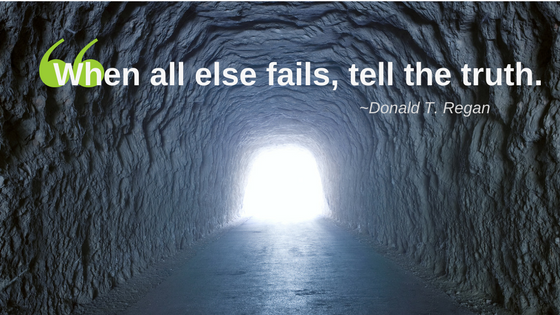Seems like an obvious question doesn’t it? If you have read Daniel Pink’s book, “To Sell is Human” you know that 9 out of 10 people have a negative perception of sales people. Heck, salespeople don’t even trust other salespeople!
What do salespeople do that makes it difficult for buyers to trust them? A survey of buyers done by Objective Management Group shows that buyers listed the following actions by salespeople that caused them to dislike them:
- Don’t Listen
- Don’t care about buyer needs
- Use of high pressure tactics
- Pestering
- Don’t know their own products
- Manipulative
- Only care about making the sale
Almost every salesperson I talk to certainly doesn’t want to come off this way. And that is the most alarming reality, most of the time they don’t even know they are doing it. What’s worse is that trust isn’t just necessary to make a decision, but to be successful with the solution. True selling, and trust building, never stops.
Based on her buyer research Deb Calvert writes, “Rather than delivering ready-made insights, buyers want sellers to work with them to brainstorm and co-create insights.”
I could continue to quote more research and data that backs up these findings. The time to change the sales approach is long overdue. So why is it not getting any better? Here is what I see happening a lot:
- #1: Reps are distracted and always rushed. They are rarely prepared. Listening requires patience and enough emotional (thought) control to stay in the present moment with the person you are talking to.
- #2: Reps who don’t know what buyers need appear to not care. They don’t know partly because they don’t actively listen, and partly because onboarding, training and coaching that is all about the company products and sales process makes it even more difficult for salespeople to be in the buyer’s world.
- #3, 4, & 6: Executives pressure managers, who pass it on to the reps, who then are emotionally involved in the outcome of the sale and end up having to resort try to get buyer’s attention through irrelevant and high pressure, manipulative tactics. Such as “I can probably get you an x% discount if you sign before the end of this month.” They come off as pestering, high pressure, and manipulative because they don’t truly know what value looks and feels like to the person they are talking to. They don’t know because they don’t listen and then ask.
- #5: Because they can’t put themselves in the buyer’s shoes, salespeople don’t fully understand the buyer's problems or why they are important to them, so they can’t relate how their product helps.
The phrase that we repeat with coaching clients so much that I am thinking about making tee shirts with it is; “It’s not about you.” (or #itsnotaboutme for clients printed upside down so that they can see it?)

What is causing salespeople to do the actions that make buyers distrust them?
In addition to what I see happening above, the reality is that salespeople know that buyers don’t trust them. According to research and surveys from the Objective Management Group, of the 1.1 million salespeople who have taken the OMG sales assessment, over half have a fear of being disliked, or a need for approval. 90% of them trust everything their buyer says to be the truth- no more questions asked. They will not push back, or ask clarifying questions to change the outcome because of their fear. They believe it will lead to a negative outcome, so they don’t do it.
How can we change it?
As sales leaders, ask yourself;
- Does your culture embrace transparency?
- What is the focus on your onboarding process?(If you haven’t read Trish Bertuzzi’s “The Sales Development Playbook” do so now.)
- How much of your team struggles with the core competencies needed to build trust with buyers? Use this free tool to find out and compare to other sales teams in your industry.
If you are a salesperson, stop waiting for your company to do something and start to take matters into your own hands. This is your career, your reputation, take ownership of it.
- Time is your commodity. Where are you spending it? What are the priorities? How does that help you accomplish your goal? Read this post on how I get stuff done and/or read Jill Konrath’s book, “More Sales, Less Time.”
- Examine your approach and tweak your mindset with the tips in this post.
- Remember that before you can have a sales conversation, you need to have a human one. Read the story of how one salesperson realized that and applied it.
- How you start a conversation is everything. If you are getting leads from your website, or inbound-click here to learn how to take smaller steps to engage with those people.






